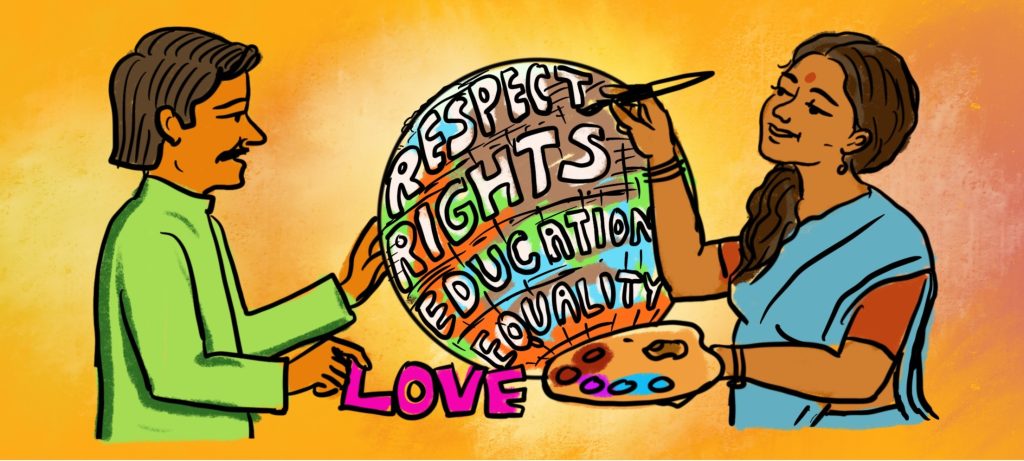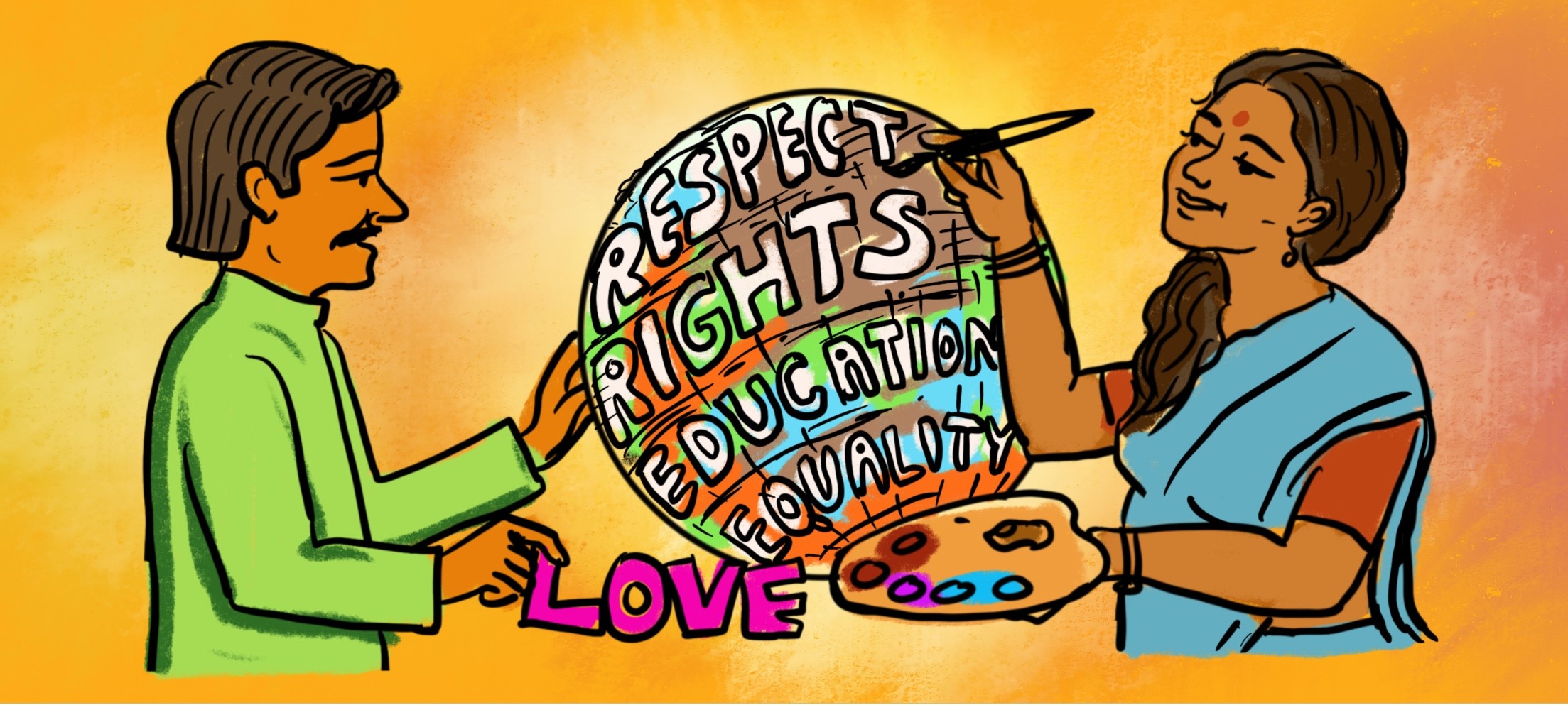For too long, the interaction between funders and grantees has been reduced to little more than a transactional exchange. Money flows one way, deliverables flow the other, and timelines are drawn with unyielding rigidity. This outdated model is increasingly being challenged. Community based organizations (CBOs) and South-based NGOs are pushing for a paradigm shift towards a more holistic approach — one that embraces non-monetary support and, crucially, flexible, unrestricted funding. (Some examples include #ShiftThePower and the RINGO Project). In this four-part blog, jointly authored by the people at Solidarity Foundation, we dive into insights from our study carried out in 2024, “Resourcing Social Movements: How Do We Shift the Power?” to tackle these complex issues.
Struggling under the weight of insufficient support
A growing number of funders are recognizing the transformative power of core funding. They have seen firsthand how a steady stream of unrestricted funds can elevate a small, emerging organization into a formidable force. “We’ve watched ‘one-person’ operations grow in strength and confidence”, shared one funder in our study. Another concurs, highlighting how shifting from project-based funding to organizational support has allowed groups to strategize for long-term growth and to seize new opportunities. Yet another funder emphasizes that core support fosters resilience in grantee organizations, enhancing their capacity for leadership, management and fundraising.
Yet there’s a sobering reality check from a CBO representative: “Many organizations remain cash-strapped, raising concerns about their long-term effectiveness and about the nature of fund allocation by funding organizations.”
The current funding landscape predominantly offers project-specific expenses, neglecting crucial areas such as indirect costs, capacity building, organzational strengthening, emergency expenditure and building financial reserves. This narrow focus stymies NGOs’ ability to operate effectively and sustainably.
To unpack these challenges, Bridgespan India Group analyzed the financial situation of 40 well-funded NGOs and surveyed 388 NGOs across various themes. The findings were troubling, revealing a pattern of chronic underfunding. Alarmingly, half of the respondents reported no operating surplus over the past three years, with rural and marginalized groups like Dalit, Bahujan, and Adivasi-led NGOs faring even worse. Most organizations had less than three months of financial reserves.
Our research revealed that CBOs often rely on smaller grants from a limited number of funders, exacerbating their already precarious situation. During crises like the COVID-19 pandemic they were dependent on emergency funding, to not just address the needs of their communities but also their own survival as organizations or collectives.
The hidden costs of project-based funding: What’s missing?
Most funding is tied to specific projects, which limits the ability of CBOs and NGOs to address urgent organizational needs or support general expenses. Emerging issues and experimental approaches seldom get the support they deserve. Often, project themes set by funders don’t align with an organization’s own priorities, yet the lack of alternative funds forces them to accept these mismatched resources. A CBO representative from our study explains: “The funds must align with our needs. If they don’t, we can’t focus on our priority issues. But we accept them because we do not always have alternatives to support our work.”
Most organizations had less than three months of financial reserves.
This mismatch highlights the broader issue: NGOs need comprehensive support, including funds for salaries, infrastructure, rent and utilities. The Pay-What-It-Takes-India initiative by Bridgespan India Group identified key barriers to true cost funding, including regulatory challenges and NGO practices. Fundraising itself requires investment — funds, personnel and resources — that many NGOs lack, creating a vicious cycle of inadequate funding.
Some funders are taking steps to bridge this gap. The Nilekani Foundation, for example, provides one-year learning grantsto foster mutual trust and understanding about organizational development priorities.

The urgent need for financial resilience
The COVID-19 pandemic underscored the critical need to invest in organizational resilience. A study by Dasra found that over 40% of 250 NGOs were at risk of financial collapse within a year due to restricted funding and inadequate financial planning.
In a potential response to the lack of deep institutional resilience, Bridgespan and the Ford Foundation developed the Grantmaking Pyramid, a framework designed to build strong, sustainable nonprofit organizations. The framework emphasizes the need for NGOs to develop financial resilience to enhance their programmes’ scope, efficacy and impact. Funders must increase non-project funding to genuinely support their grantees in developing deeper roots.
Over 40% of 250 NGOs were at risk of financial collapse within a year due to restricted funding and inadequate financial planning.
Organizations have found individual funding to be a valuable component of their financial resilience. As highlighted by a respondent from a community foundation: “Individuals give you less money, but a lot of individual money is strings-free.” The flexibility associated with individual donations, often raised through crowdfunding, allows organizations to allocate funds to the areas of greatest need without the constraints typically tied to institutional grants. This lack of specificity enables organizations to respond more dynamically to immediate challenges and opportunities, supporting a broad range of activities that may not always align with specific project goals.
Funder support
Traditionally, non-profit funding has been restricted by specific agendas, timelines and project goals. However, there has been a significant shift in recent years toward a more holistic approach to funding relationships. Many large foundations and grant-giving institutions now recognize the importance of providing support beyond project-specific funding. This broader support includes flexible funding options, such as general operational support and funding for indirect costs, including rent, administrative expenses and salaries for non-programme staff. Unrestricted grants and capacity-building initiatives are also part of this evolving landscape, aimed at strengthening and sustaining NGOs.
In times of crisis, funders play a crucial role by providing emergency funding to their existing grantees and other organizations in need. This timely financial support is often complemented by a suite of additional resources and services under the concept of accompaniment. This includes offering networking opportunities and collaborative spaces for organizations with similar thematic focuses, connecting grantees to other funders, and delivering skilling and capacity-building workshops tailored to the specific needs of individual organizations or groups. Furthermore, funders may provide legal and financial consulting to help organizations navigate complex challenges, thus bolstering their resilience in uncertain times.
Therefore, in addition to financial support, non-monetary assistance has become a critical component of this new funding paradigm. Funders are increasingly helping grantees develop performance frameworks and metrics, streamlining application and reporting processes, and leveraging their networks to facilitate introductions and connections for grantees. These comprehensive support mechanisms are essential for enhancing the operational capacity and long-term sustainability of NGOs, enabling them to better serve their communities and achieve their missions.
Organizations driving social change need far more than project-specific funding. They require comprehensive, flexible support to build resilient structures capable of sustaining long-term impact. Without addressing these fundamental needs, the development sector will continue to struggle, and the communities they serve will bear the brunt of this systemic shortfall. It’s high time we reimagine the funder-grantee dynamic to foster a partnership that is both more equitable and effective.
Follow the links below to read the other blogs in this series from the Solidarity Foundation.
Part 1: Did the pandemic prompt a rethinking of funder-grantee dynamics?
Part 3: Drowning in bureaucracy: Paperwork that kills the revolution.

